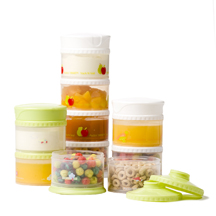Oh baby, yes!

I’ve decided on my birth plan,” I told my best […]
I’ve decided on my birth plan,” I told my best friend. I was seven months pregnant, and I’d just finished reading a collection of positive birth stories. While reading, I’d made up my mind. “I’m going to have an orgasmic birth,” I said.
My friend looked at me like I’d sprouted horns. “Good luck with that,” she retorted.
Did my birth plan sound crazy? It shouldn’t have. True, orgasm isn’t exactly the word most women use to describe giving birth, but the physical reality of what happens in labor is surprisingly similar to sex.
Phys. Ed.
During both labor and orgasm, your body produces the same hormones: oxytocin, beta-endorphins, adrenaline/noradrenaline, and prolactin. “I call them ecstatic hormones,” says Sarah Buckley, MD, of Brisbane, Australia, author of Gentle Birth, Gentle Mothering. “The orchestration of these hormones when you make a baby is almost identical to when you have a baby.”
And it’s not just the hormones that are similar. Your vagina swells with blood during labor, just like during orgasm. It’s not much different from a male erection—and has the same effect. When your baby’s head is crowning, there’s more than just stretching going on. “The vagina gets enlarged,” says Ina May Gaskin, CPM, director of The Farm Midwifery Center in Summertown, Tennessee, and author of Ina May’s Guide to Childbirth. “It’s bigger in the same way a man’s penis gets bigger.”
Now doesn’t that sound more fun than a ring of fire?
She’s not faking it
Why is it most women are more likely to compare birth to a bowel movement than to orgasm? It’s partly just vocabulary. “So many woman find it horrible to have any mention of orgasm in connection with childbirth,” Gaskin says, “as if there’s something obscene about enjoying giving birth.” But just because it’s fun doesn’t mean it’s sexual. “Orgasmic doesn’t necessarily mean orgasm,” explains Debra Pascali-Bonaro, DONA International doula trainer in Upper Saddle River, New Jersey, and producer of the film Orgasmic Birth. “It’s heightened physical or emotional sensation.” Her definition of orgasmic birth: “When a woman takes her power and finds satisfaction in the way she gives birth.” Most of us are satisfied with any birth that ends with a healthy mother and baby, but in Gaskin’s experience, both outcomes often go together—pleasure during labor means birth is going right.
How to love labor
Is there a science to achieving orgasmic birth? Not necessarily. Just like with sex, there’s nothing you can do to guarantee pleasure. But you can make it more likely.
Choose the right location.
“You need to feel private, safe and unobserved,” says Buckley. Find a provider who will respect your wishes and your space. For Elainie King, a mom of six in Boulder, Colorado, the right location for her sixth birth was her own bathroom. After less than an hour of mild contractions, she thought she had to poop. But after one gentle push, she looked up in the mirror to see her baby’s head hanging out of her body. “I stood there for five minutes in awe,” she says. “It felt really good. There wasn’t any orgasm, but it was a very pleasurable feeling. It was completely divine.”
Set the atmosphere.
Consider lighting, smells and sounds, and create a sense of intimacy in the labor room. “Act like you own the place,” says Gaskin, “and don’t be intimidated. Bring whatever it takes to make you feel at home.”
That could mean candles and music, but it could also mean actual intimacy with your partner. For Julie Sanders, a mom of two in Atlanta, getting it on was what kept labor going. When she wasn’t progressing after 36 hours, her doula suggested she take a shower with her husband. Their tryst helped contractions increase, and then Julie lay in the birthing tub as her husband stimulated her nipples. “It was painful,” she admits, “but it was an awesome, rhythmic situation. I’d feel something coming, and he would massage my nipples. It was very much an orgasmic feeling but also a pressure feeling. Then he’d stop, and we’d go back to resting.”
Let go of fear.
If you expect labor to be painful, chances are it will be. Changing your expectations, however, could change your experience. For Shannon Brannan, a mom of two in Marietta, Georgia, a mental shift was all it took to transform her labor. She had hoped for an orgasmic birth. But 20 minutes into her induction, she was sitting on the toilet, screaming in pain.
“I didn’t want to be screaming when my child came out,” she says. So instead she started chanting, “Orgasmic.” And “within sixty seconds, the pain subsided.” For the rest of her labor, she felt only pressure, not pain.
Relax.
Just like a sexual orgasm, orgasmic births don’t come if you’re trying too hard. “I would never want any woman to have an expectation of orgasm,” says Pascali-Bonaro. “Women do not need one more thing they need to achieve.” Adds Gaskin, “You have to not care. It’s better when it comes by surprise.”
That’s exactly how it came for Megan King, a first-time mom in Lilburn, Georgia. “On the third to last push, everything started tingling,” she remembers. “My whole body shivered. It was so not sexual, but it was beautiful. I felt life coming out of me. The warm gushiness and the pleasure of it—it was magical.”
As for me? My 36-hour labor was mostly painless. When I caught my daughter and looked into her eyes, it wasn’t exactly orgasmic. But ecstatic? Divine? Transcendent? Absolutely.
Empowering birth
Giving birth will definitely change your life—you’re having a baby, after all!—but a blissful birth can have a profound effect on your journey to motherhood. It can transform you, and even heal you.
Heal is what it did for Sanders. “I was raped in college,” she says. “And my first birth felt so similar to the rape. No one was listening to me.” She kept trying to refuse procedures, but her words were dismissed. That birth, which ended in a C-section, made her second birth even more meaningful. “It was like I realized: That’s mine,” she says. “Everything is sensual and sexual and raw. Everything down there belongs to me.”
Ultimately, that’s what orgasmic birth really means: not just a great feeling, but a great sense of empowerment. “Birth is an opportunity,” Pascali-Bonaro says, “an opportunity for women to discover strength and power.” And that is definitely something every woman can enjoy.








